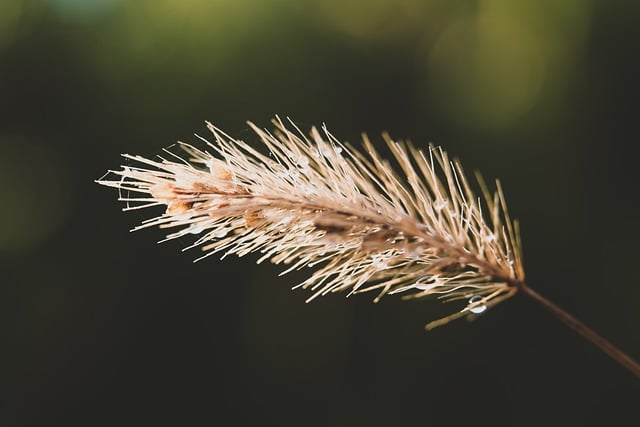THCA flower, a non-psychoactive cannabinoid from the Cannabis sativa plant, has garnered attention in the skincare realm due to its therapeutic properties. Rich in fatty acids, terpenes, and amino acids, it offers anti-inflammatory and antioxidant benefits that can soothe irritated skin, protect against environmental stressors, regulate sebaceous gland activity, and potentially treat conditions like eczema and psoriasis. Its interaction with the body's endocannabinoid system, particularly with CB2 receptors, suggests it could enhance skin health by alleviating redness, mitigating acne, and promoting anti-aging effects. Incorporating THCA flower into your skincare routine can be done through homemade infusions with carrier oils like coconut or olive oil, or by adding it to face masks or serums after a patch test for compatibility. This natural ingredient is becoming increasingly recognized in the realm of dermatological health, offering a promising alternative for those seeking to improve their skin's appearance and health without psychoactive effects.
Discover the transformative power of THCA flower in elevating your skincare regimen. This article delves into the untapped potential of this cannabinoid-rich botanical, revealing its benefits for skin health. From understanding the science behind THCA’s properties to integrating it seamlessly into your daily routine, gain insightful guidance on leveraging THCA flower for skin care. Unlock the secrets to radiant, healthy skin with this comprehensive exploration.
- Unveiling the Potential of THCA Flower in Skincare Regimens
- The Science Behind THCA Flower and Its Benefits for Skin Health
- Incorporating THCA Flower into Your Skincare Routine: A Step-by-Step Guide
Unveiling the Potential of THCA Flower in Skincare Regimens

THCA, or tetrahydrocannabinolic acid, is a non-psychoactive cannabinoid found in the Cannabis sativa plant that has garnered attention for its potential therapeutic properties. When heated, THCA converts to THC, the most well-known cannabinoid, but in its raw form, THCA flower holds a unique promise for skincare regimens. This natural compound is rich in beneficial compounds like fatty acids, terpenes, and amino acids, which can contribute to maintaining healthy skin. The anti-inflammatory and antioxidant properties of THCA flower may help soothe irritated skin and protect against environmental stressors. Its application in skincare is not just anecdotal; scientific studies suggest that THCA could inhibit the activity of sebaceous glands, potentially aiding those with oily skin concerns. Furthermore, the presence of cannabinoid receptors in the skin, particularly CB2, indicates a biological receptivity to cannabinoids like THCA, which may enhance the efficacy of topical skincare treatments. Exploring the integration of THCA flower into skincare routines could open new avenues for dermatological well-being, leveraging the full spectrum of its natural benefits for the skin.
The Science Behind THCA Flower and Its Benefits for Skin Health

Delta-9-tetrahydrocannabinolic acid (THCA) is a non-psychoactive cannabinoid found in the Cannabis sativa plant, which has garnered attention for its potential therapeutic properties. THCA flourishes as a raw, unprocessed form of cannabis that contains higher levels of THCA than its psychoactive counterpart, Delta-9-tetrahydrocannabinol (THC), when harvested before the plant has been exposed to heat during the drying process. The science behind THCA’s interaction with the human body revolves around its engagement with the endocannabinoid system, which plays a significant role in regulating various physiological processes, including skin health.
Research suggests that THCA may offer beneficial effects for skin care due to its anti-inflammatory and antioxidant properties. These properties are believed to help soothe irritated skin, reduce redness, and combat environmental stressors. Topical applications of THCA flower extracts have been shown to potentially alleviate skin conditions such as eczema and psoriasis. The cannabinoid’s ability to modulate the activity of sebaceous glands may also contribute to its acne-fighting capabilities, making it a promising ingredient in skincare formulations aimed at promoting clear, balanced skin. Additionally, THCA’s anti-aging potential is an emerging area of interest, with studies indicating that it could support the skin’s natural repair processes and help maintain the integrity of collagen and elastin, key components for youthful-looking skin. As such, incorporating THCA flower into skincare regimens may offer a multitude of benefits for individuals seeking to enhance their skin’s health and appearance.
Incorporating THCA Flower into Your Skincare Routine: A Step-by-Step Guide

1. Incorporating THCA flower into your skincare routine can be a transformative experience, offering potential benefits for skin health. Tetrahydrocannabinolic acid (THCA) is the raw, non-psychoactive form of THC found in cannabis plants, including hemp. When used topically in its natural state as THCA flower, it may provide skincare advantages without the psychoactive effects associated with THC. To effectively integrate THCA flower into your regimen, start by selecting a high-quality product from a reputable source. Ensure that the THCA flower is free from pesticides and heavy metals to ensure safety and efficacy. Once you have your THCA flower, grind it to enhance its surface area for better absorption. You can then create a homemade infusion by combining a small amount of the ground flower with a carrier oil like coconut or olive oil. Allow this mixture to steep for several weeks, gently warming it occasionally to increase potency. After the steeping process, apply the infused oil directly to the skin, focusing on areas you wish to target for care. For optimal results, use consistently as part of your daily skincare routine.
2. It’s important to introduce THCA flower into your skincare regimen gradually. Begin by performing a patch test to ensure there are no adverse reactions on your skin. If your skin tolerates the THCA flower well, you can then incorporate it into specific treatments or your everyday moisturizer. For instance, you might use it as part of a face mask or serum. To create a face mask, mix the THCA-infused oil with clay or bentonite for detoxifying properties and a touch of honey for its antibacterial benefits. Apply this mask to clean, dry skin and rinse after 15-20 minutes. When using THCA flower in a serum, combine a few drops with your regular facial serum before application. The THCA flower is rich in beneficial compounds like terpenes and cannabinoids, which may work synergistically to promote healthy, radiant skin. Always patch test new products and adjust the frequency and amount of use based on your individual skin’s response. With careful introduction and consistent use, THCA flower can be a valuable addition to any skincare routine, offering potential benefits for skin health and appearance.
THCA flower has emerged as a promising ingredient in skincare, offering a natural approach to healthier and more radiant skin. The exploration into its potential has revealed compelling scientific evidence supporting its inclusion in skincare routines. This article has delved into the multifaceted benefits of THCA flower for skin health, guiding readers through the integration of this botanical wonder into their daily beauty rituals. As the understanding of THCA flower for skin care continues to evolve, it is clear that this plant compound may offer significant advantages over traditional skincare actives, positioning itself as a valuable asset in the quest for optimal skin wellness. Embracing the insights presented here can lead to informed choices about incorporating THCA flower into one’s personal skincare regimen, ensuring a luminous and vibrant complexion.


